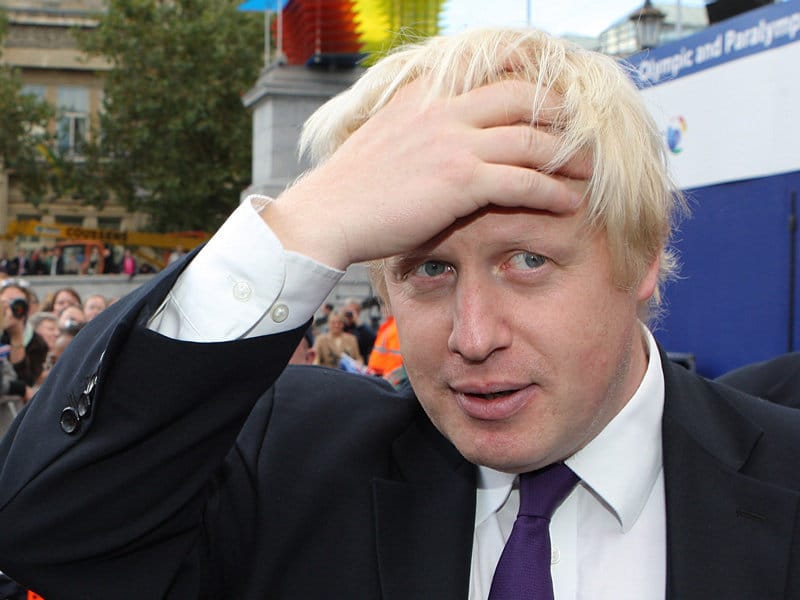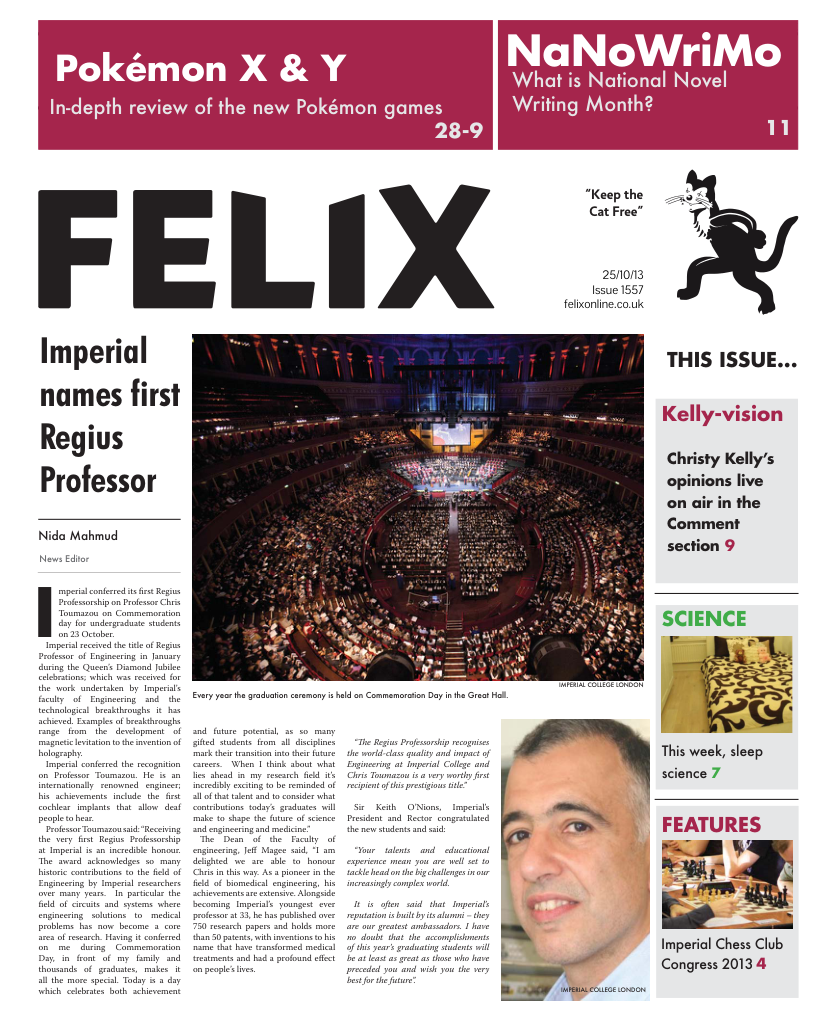Boris: Resolute Vertebrate Jelly Part I
Comment Editor Eoghan Totten on Boris Johnson

The mayor for London, Boris Johnson, made the headlines in February of this year after deeming members of the London Assembly as “great supine protoplasmic invertebrate jellies” for failing to interrogate him over revisions to the £16.5 bn budget. The characteristic neologism merely capped his voluminous arsenal of quips and redeeming facets. He is, by far, the most popular politician in The Conservative Party at present. A March 2013 poll carried out by the London Evening Standard claimed that he would obliterate Ed Miliband in the polls if he were to (hypothetically) succeed David Cameron as party leader. His broad and endearing appeal to the people of London is extensive, being re-elected with a 44% mandate over Labour’s Ken Livingstone.
It has become increasingly apparent to me that Boris Johnson’s political machinations often proceed without inhibition. As an indifferent freshman I voted him back into power in 2012, purely on a whim of popularity. This dawned on me eighteen months later when a friend commented with vitriol that he simply, “doesn’t get the phenomena that is Boris Johnson. Londoners blindly tolerate his mayorship despite him being a blatant right-wing arsehole.”
My view of Boris Johnson isn’t as extreme. In fact an ethereal veil of guilt envelops me when I criticise him at all. I want to examine the reasons for his apparent immunity to criticism in context of his policies. Boris’ ‘9- point plan for a Greater London’ covered a lot of ground for a manifesto during the 2012 election campaign. Its appeal spanned all societal thresholds. Foreign investment bankers, migrant workers and local Londoners alike were able to empathise with its fiscal rectitude. Cuts to city hall in excess of £3.5 bn simultaneously implied that Boris Johnson intended to inhibit any unnecessary bureaucracy while delivering more for Londoners. The ability to demonstrate apt finances for the latter proved pivotal in overturning Ken Livingstone of Labour. The complementary freezing of the Mayoral share of council tax bolstered Mr. Johnson’s resolve. Crucially, the £445 return for the taxpayer may have provided comfort to Londoners on the bottom rung of the income ladder.
The binary pledge of creating 200,000 jobs by 2015 with a £221 million investment in small business was ambitious. Its universal appeal was again apparent. This championing of capitalism may have served to appease not only the financially endowed but also the jobless and working classes. In an analogous fashion his support of strong policing, combined with a pledge for green space restoration, encompassed two fulcrums in the lives of those who live in a city. Safety and health are chief priorities for all citizens. By demonstrating that city hall’s sympathies were congruent with those priorities Boris Johnson made a smart move. He managed to decouple his integrity as a man from his capitalist politics. It was of perennial importance that Boris Johnson distanced himself from Downing Street. Ken Livingstone was always conveyed as thoroughly enmeshed with his labour politics. This skew, albeit slight, may have contributed to his downfall at the polls.
I conclude with a note on Boris’ approach to transport. His pledge to service improvement on the tubes, expansion of the ‘Boris Bike’ scheme, when underpinned by fledgling projects such as Crossrail and unwavering support for an airport on the Thames estuary, conveyed a steadfast sense of resolve. To warp his own words he is, undoubtedly, a vertebrate. As I’ll attempt to demonstrate next week he’ll need to be dynamic and fluid as mayor in the coming years. Rising rail fares, a flat-pack Olympic legacy and the ‘plebgate’ debacle are clear evidence for this.





